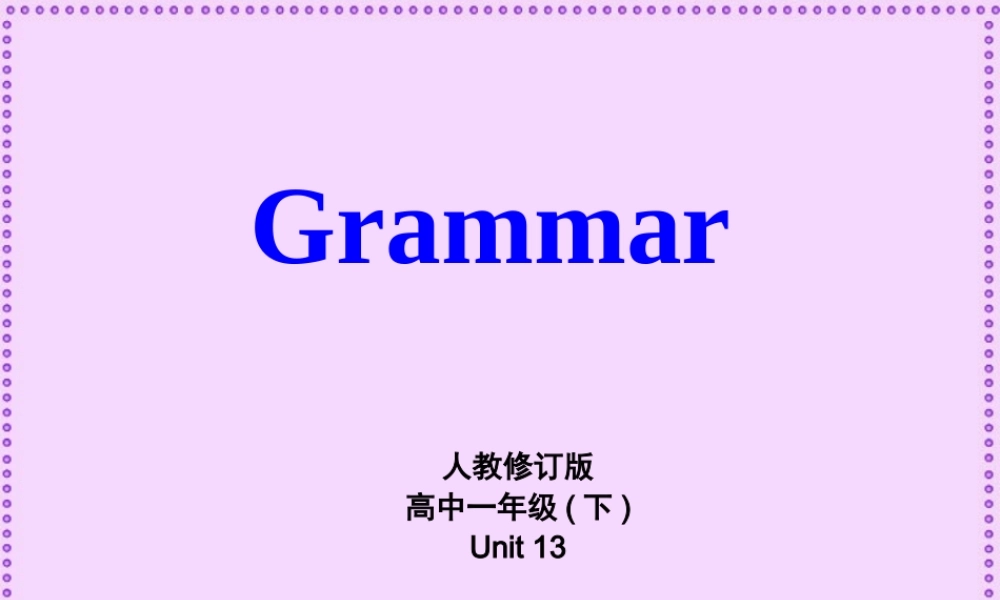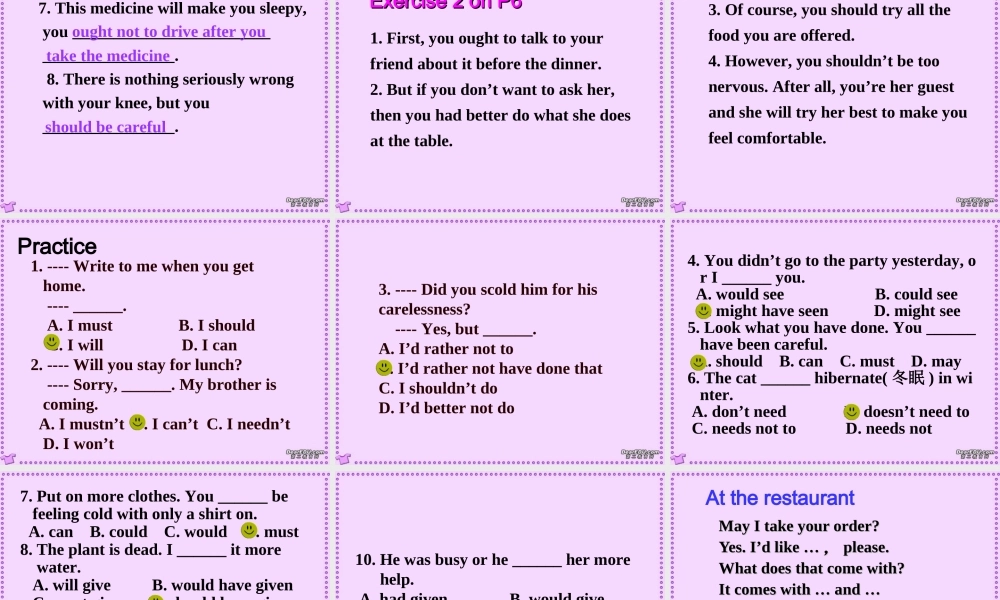Grammar 人教修订版高中一年级 ( 下 )Unit 13 三者都可用来提建议,其中had better 语气最弱, should, ought to 语气最强。他们的否定式分别是:had better not, should not, ought not to 。 情态动词 had better, should, ought to 的用法 1. had better 意思是“最好” , 表示说话人希望对方做什么 , 后接动词原形。had better not 则表示说话人希望对方最好不要做什么。 You’d better not say that. 你最好别说那样的话。 Hadn’t we better take an umbrella? 我们最好带一把伞吧? I had better (I think I should) begin by introducing myself. 我最好(我想我应该)先作一下自我介 绍。 2. should 用以表示建议或劝告 Children should obey their parents. 儿童应该服从他们的父母。 He should stop smoking. 他应该戒烟。 You shouldn’t leave a baby alone in the house. 你不应该把小孩子一个人留在家中。 They should have called the police.他们本应该叫警察的。 He should have known that the police would never allow this sort of thing. 他本应知道这样的事情警察是决不允 许的。 3. ought to 1) 常用来表示因为有责任、义务, 而应该做某事,通常与 should 意 思相近。 The students ought to obey the school rules . 学生们应遵守校规。 Oughtn't we to give him a chance to try? 我们难道不应该给他一个尝试的 机会吗 ? 2) ought to 也常用来表示劝告或建议,意思是“应当”,“宜于”。 There ought to be more buses during the rush hours . 在上下班乘客拥挤的时刻,公共 汽车应当多一点。 3) ought to 还可表示猜测,意思是“理应”,“总应该”。 If he started at seven, he ought to be here now . 要是他七点钟出发,这会儿总应该到了。Read the following sentences: Read the following sentences: Read the following sentences: Read the following sentences: You had better get some rest. You had better get some rest. (=You’d better get some rest.) (=You’d better get some rest.) You had better not eat fruit that isn’t You had better not...




